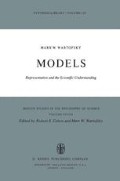Abstract
The problem I address in this essay is that of individuation in Spinoza’s system. The apparent contradiction in the system is that Spinoza holds substance (Nature, God) to be a unity, to be simple (i.e. not compound, or composed of parts), eternal (i.e. uncreated and having no duration), and infinite (i.e. not determinate and not denumerable); and yet he also holds that ‘in substance’ there is infinite differentiation, there are determinate and finite modes, there is duration, and there are real individuals. Nor is it, for Spinoza, a case of there being both this and that: substance and modes, eternity and duration, one and many. Rather, he proposes that the infinity of modes is identical with substance, or is just the way substance is: a unity which is nevertheless infinitely differentiated; a simple which has no parts, but is nevertheless individuated; an eternal being which somehow expresses itself in duration; and an infinity which yet constitutes determinate, finite modifications of itself necessarily, in its activity.
Access this chapter
Tax calculation will be finalised at checkout
Purchases are for personal use only
Preview
Unable to display preview. Download preview PDF.
Notes
Correspondence, trans. by R. H. M. Elwes Dover Publications, New York 1955, Letter LXXI (LXXXII), pp. 408–9.
Ibid., Letter III, pp. 279–82; and Spinoza’s letter to Oldenburg, XV (XXXII), pp. 290–3.
Ibid., Letter XXIX (XII), pp. 317–23.
Ibid., Letters XXXIX, XL (XXXV), XLI (XXXVI), pp. 351–8.
Ibid., Letter L (L), pp. 369–70.
M. Wartofsky, ‘Action and Passion: Spinoza’s Construction of a Scientific Psychology’, in Spinoza, (ed. by M. Grene), Anchor Press/Doubleday, Garden City, N.Y. 1973, pp. 329–53. Reprinted in this volume, pp. 231–254.
Correspondence, Letter XXIX (XII), pp. 317–23.
Ibid., pp. 319–20.
Ibid., p. 322.
Rights and permissions
Copyright information
© 1979 D. Reidel Publishing Company, Dordrecht, Holland
About this chapter
Cite this chapter
Wartofsky, M.W. (1979). Nature, Number and Individuals: Motive and Method in Spinoza’s Philosophy. In: Models. Boston Studies in the Philosophy of Science, vol 48. Springer, Dordrecht. https://doi.org/10.1007/978-94-009-9357-0_14
Download citation
DOI: https://doi.org/10.1007/978-94-009-9357-0_14
Publisher Name: Springer, Dordrecht
Print ISBN: 978-90-277-0947-9
Online ISBN: 978-94-009-9357-0
eBook Packages: Springer Book Archive

